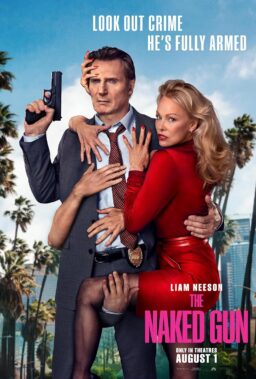One of my indelible memories from 1950s television is of Leon Ames, on Life with Father, standing in the midst of a family catastrophe and exclaiming, “Oh, no!” Now the trouble with that line is that it doesn’t look like much in print. It doesn’t sound like much, either, unless you can remember the way Ames delivered it.
I asked him about his delivery the other day, and he sought a metaphor: “It had to be pronounced,” he said at last, “as if you had just been prodded with a hot poker.”
This was during lunch at Riccardo’s, where Ames was putting away the Pete Special and talking about how he couldn’t stand retirement. He retired five years ago, at 65, he said. “But I wasn’t equipped to retire. I took up golf. I gardened. I learned tuckpointing and tuckpointed the house. I traveled to Europe. That was all right, but then I had to come back home. The whole business was getting too boring for me. So I went back to work.”
His work recently has included a cameo role in “Hammersmith is Out,” the new Burton-and-Taylor collaboration, and that reminded Ames that he first held Elizabeth on his knee when she was 13. “God, she was beautiful,” he said. “I held all the great beauties on my knee. And the hell of it was, they were all 13.”
His other new film – the reason for his visit to Chicago – is “Toklat,” the story of a grizzly bear. It opens here Friday, and it is not another one of those bloody, gore-ridden hunting movies. Ames plays an old sheep rancher who gets involved with the grizzly “when it’s goaded into killing my drunken sot of a brother. But the bear isn’t guilty.”
The footage with the bear spans a period of 4 1/2 years, while it was growing up, and the movie was photographed between the 7,000- and 11,000-foot lines of the mountains over Salt Lake City. It’s a lovely film, Ames says, and it’s gotten him worried about grizzlies.
“The way they figure it,” he said, “the grizzly is classified as a ‘rare’ species, but not an ‘endangered’ species, because there are still 600 of them. I think that’s pretty damn endangered. And yet they still have a hunting season on grizzlies in Montana.”
Ames looked around Riccardo’s and remembered that the last time he’d eaten there was 20 years ago, when he was starring in “The Moon Is Blue.” “I ate here with a kid by the name of James Dean who’d come through town,” he remembered. “He knew a couple of the people in the cast, and they prevailed on me to let him sleep on my couch for a few nights. He was kind of a dirty-looking kid with glasses . . . sincere, real sincere.”
Ames was born on an Indiana farm and never wanted to be anything but an actor, he said. He’s been one for 51 years. He started with a five-year hitch in a touring New England repertory company that gave 14 performances a week, 50 weeks a year: “You got very close in a company like that. The juvenile would be on the make for the ingenue, and so forth.”
His best known roles have been as fathers, in “Life with Father” and “Meet Me in St. Louis” and “Father of the Bride,” but he doesn’t much enjoy working with child actors, he said. “Kids can learn anything in 10 seconds. The little bastards would be standing around picking their noses while I was trying to learn my lines . . . I could have killed them. And their mothers, too. Stage mothers are even worse than child actors. Of course, I love kids in everyday life. It’s only speaking professionally that I hate them.”
His first big Broadway break was in James Thurber’s “The Male Animal,” and Thurber became a close friend. “He was a funny, funny man. He hated women, and he hated parties, and he had this thing he would do. He was blind in one eye, even in those days. And he would keep that eye closed. And then when he was cornered at some party by a woman he couldn’t stand, he’d just raise his lid slowly. And inside he’d have a glass eye with the American flag painted on it.”











